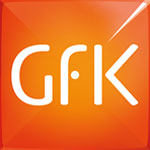
Rising income expectations are the primary reason for the continued upward trend in the consumer climate in February. Consumer confidence in the positive development of the labour market and stronger income growth remains unshaken. Although economic expectations and the propensity to buy are currently recording slight decreases, their still high level signals a highly positive prevailing mood.
Consumers continue to perceive the German economy as being on an upward growth trend. Although economic expectations have recorded a slight decline of 1.7 points in February, the indicator is still at a very high level, standing currently at 57.1 points. This represents an increase of just under 63 points compared with February 2010.
Consumers are assuming that the economy will continue to record positive growth in the coming months, even if the high level of momentum seen last year, when the gross domestic product grew by 3.6% in real terms, has not quite been matched. Companies are also anticipating continued robust growth, and this is confirmed by the Ifo Business Climate Index, which climbed yesterday to the highest level recorded since the reunification. Germans are reading the very pleasing growth on the labour market as an important signal for good economic development. Although job creation has recently come to a brief halt owing to the weather conditions, this will not stop the fundamentally positive overall trend.
After a slight fall in the prior month, income expectations have increased once again in February and more than compensated for the decrease in January. The indicator currently stands at 42.9 points, which represents an increase of 5.2 points compared with January 2011 and a rise of just under 31 points from February 2010.
Against the backdrop of good labour market development and the excellent economic situation of many companies, employees have high hopes that wage and salary increases will be more generous in 2011 than in previous years. In addition, a number of companies have announced that they will be bringing salary increases planned for April forward to February, as well as awarding one-off payments.
Just recently, the GfK Association published a study on the financial circumstances of German consumers. According to the findings, almost a third of German consumers currently assess their own financial situation as positive, compared with just a quarter a year ago. The biggest improvements have been recorded in East Germany, where the number of people who can "afford most things" or "do not have to practice any restraint at all" is up by almost a third from last year. 48% of Germans have enough money "to get by", which is an improvement of 3 percentage points from the prior year. The number of those who, according to their own assessment, "can just about make ends meet" decreased by the same amount, to 17%. However, the GfK Association's study shows that 4% of the population are experiencing extremely strained financial circumstances - the same percentage as in the prior year.
After the strong growth seen in January, the propensity to buy is currently recording a slight decrease. The indicator has fallen by 2.9 points and now stands at 38.9. However, this is still 14.7 points higher than the corresponding value for the prior year.
Despite the slight decline in February, an upward trend is still evident for the start of 2011. Falling unemployment and, as a result, dwindling fears of redundancy are giving consumers greater planning security, particularly with regard to larger purchases, and are therefore boosting buying sentiment. Furthermore, the currently low interest rate is making purchases more attractive in comparison with financial investments. These effects are currently outweighing emerging fears of inflation, which tend to have a negative effect on the propensity to buy.
The overall indicator is forecasting a value of 6.0 points for March 2011, after a revised value of 5.8 points in February. The consumer climate is therefore continuing its upward trend. The domestic economy, and in particular consumption, is playing an increasingly important role in macroeconomic development and acting as a second, strong supporting pillar. This corroborates the forecast that GfK published at the beginning of February, which stated that real private consumption would increase by 1.5% this year.
These findings are extracts from the GfK consumer climate MAXX survey, which is based on around 2000 consumer interviews conducted each month on behalf of the EU Commission. The report contains charts, forecasts and a detailed commentary regarding the indicators. In addition, the report includes information on proposed consumer spending in 20 different areas of the consumer goods and services markets. The GfK consumer climate survey has been conducted since 1980.

The GfK Association was established in 1934 as a non-profit organization for the promotion of market research. Its membership consists of approximately 600 companies and individuals. The purpose of the Association is to develop innovative research methods in close cooperation with academic institutions, to promote the training and further education of market researchers, to observe the structures and developments in society, the economy and politics that play a key role in private consumption, and to research their effects on consumers. Survey results are made available to the membership. The GfK Association is a shareholder in GfK SE.
Go to: http://www.gfk.com